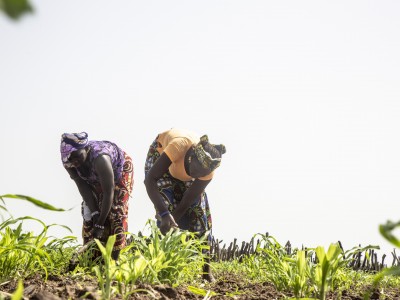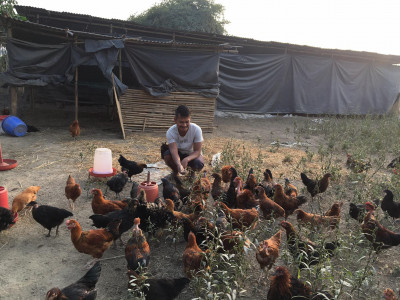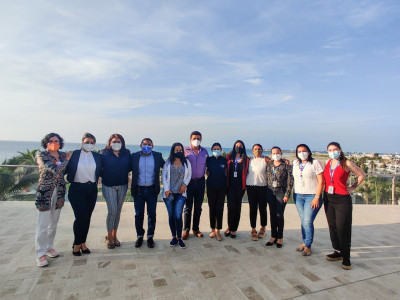Strengthening the capacities of the Decentralized Autonomous Governments (DAG) of Northern Ecuador to facilitate human mobility
Objetivos de Desarrollo Sostenible Relacionados y Objetivos del Pacto Mundial sobre Migración
Resumen
This project comes from the JMDI Phase II, a UN Joint Migration and Development Initiative, run in cooperation by IOM, UNDP, ILO, UN Women, UNFPA, UNITAR which took place from 2012 to 2017 and worked to contribute to the protection and exercise of the rights of people in human mobility in the province of Pichincha, from the perspective of integral human development and through strengthening of their social, productive and cultural capacities in the provinces of Imbabura, Esmeraldas, Carchi and Sucumbíos.
According to recent statistics, there are over 28,000 Colombian refugees residing in the northern border region of Ecuador – representing approximately 51% of all refugees in the country. Their presence in the northern border region has revealed a gap in services, as many do not have access to employment, health, education and housing, given the structural poverty of the zone. Therefore, many of the refugees, as well as other migrants, are in a vulnerable situation and unable to achieve economic and social inclusion. This noted exclusion is additionally heightened due to their often-limited knowledge of their rights. Additionally, Ecuadorian migrants who have returned to the northern border have settled in the main centres of economic attraction. Yet, they also find themselves in a vulnerable position because of their profile (age and education) and their lack of local, social networks, which hinder their ability to successfully re-enter the labour force.
This project provided services to support migrants and displaced persons’ integration and reintegration. Mainstream migration into development planning was enhanced through the establishment of a Human Mobility Unit based on the Pichincha Model as outlined above. Similarly, to Pichincha, this has also contributed to enhancing the integration of migrants and displaced persons socially, culturally, economically and politically and paved the way towards their ability to develop themselves as well as contribute to society overall. The HMU was also supported to further mainstream migration into provincial and local planning at the municipal level for enhanced sustainability of migration governance.
Objetivo clave
The overall objective of the project was to contribute to the protection and exercise of the rights of people in human mobility in the province of Pichincha, from the perspective of integral human development and through strengthening of their social, productive and cultural capacities.
Principales actividades
The main activities of this successful JDMI project were:
- A needs assessment and allocation of a budget and formation of teams to ensure sustainability and institutionalisation of the mainstreaming process to create a HMU.
- A mapping exercise of public and private actors with migrants and displaced people as attention groups.
- With a view to enhancing the social and economic inclusion of migrants and displaced persons, activities such as entrepreneurship fairs, training in crafts, and support for the management of micro-enterprise were supported.
- A mapping of public and non-government actors to identify pre-existing programmes.
- A collaboration of provincial government at local level with decentralized governmental actors.
- Setting criteria for coordinating actions and services.
- Referring cases and collaborating to share key information to promote the mainstreaming of migration into provincial public policies through a a paradigm case handbook. This tool was created to share good practices in an effort to assist local and municipal institutions in addressing migration-related issues when they arise.
Éxitos clave o factores innovadores, buenas prácticas y lecciones aprendidas (si están disponibles)
The lessons learned from this project outline that:
- Inter-agency coordination is crucial for comprehensive inclusion and equal access to services for migrants and displaced persons.
- Inter-agency coordination among various government entities requires actors to set political allegiances and positions aside.
- Mainstreaming migration leads to more holistic and inclusive territorial development planning.
- Conducting a needs assessment directly with the target population provides greater clarity for mainstreaming migration.
Beneficiarios
Beneficiaries of this project were the refugees, immigrants, people in transit and Ecuadorian returnees and their families in the province of Pichincha.


